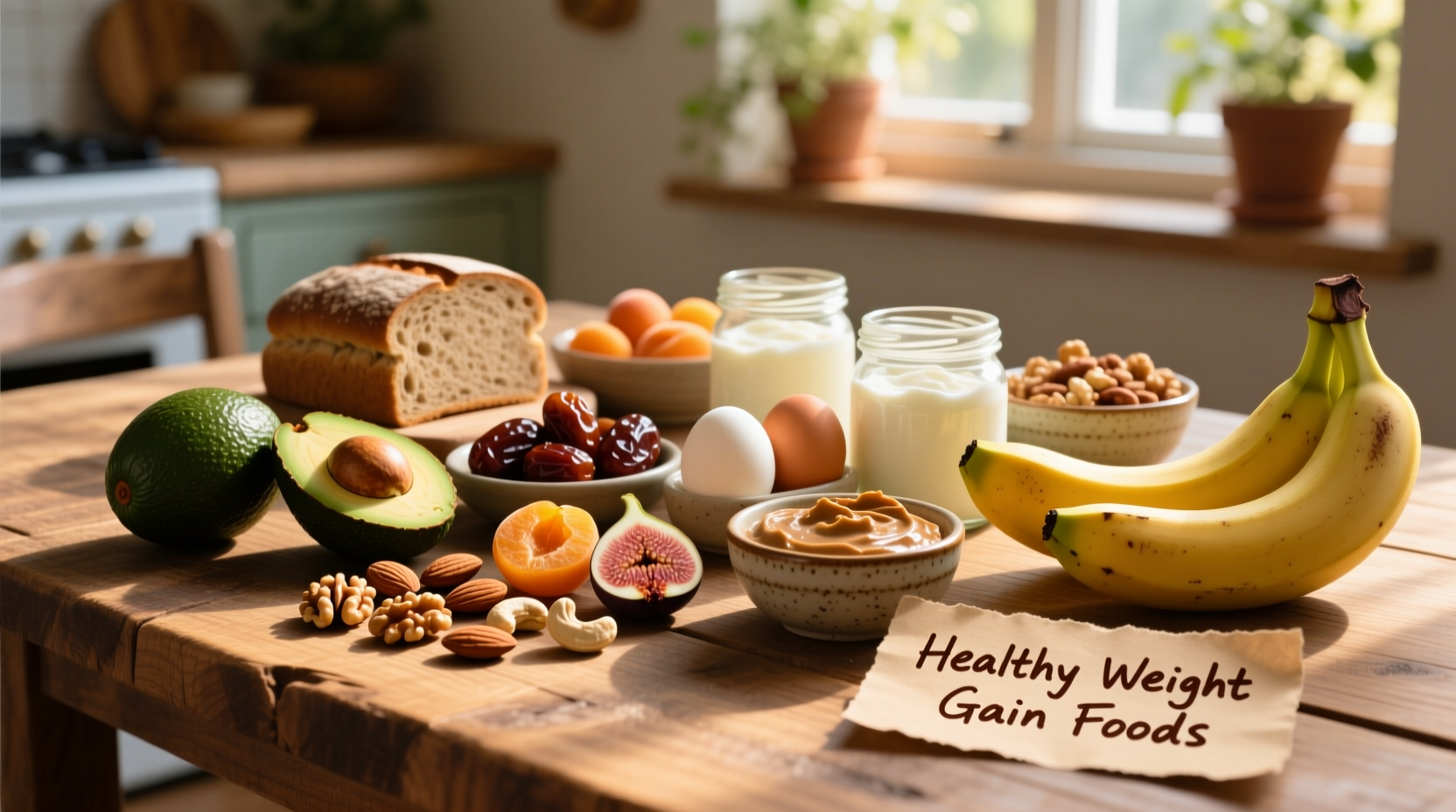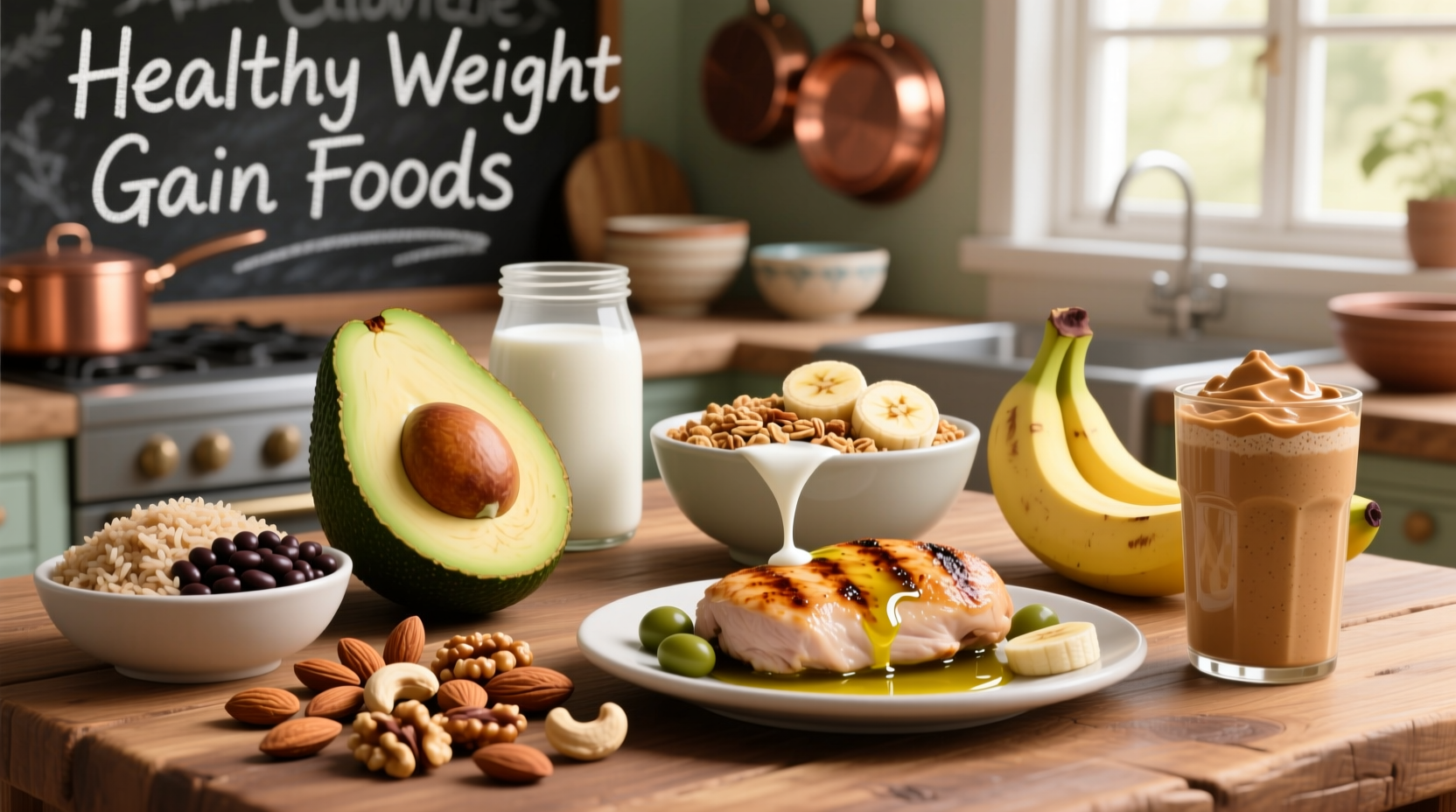For healthy weight gain, focus on calorie-dense, nutrient-rich foods like avocados, nuts, seeds, whole grains, lean proteins, and healthy fats. These provide essential nutrients while creating a calorie surplus needed for sustainable weight gain without compromising health.
If you're looking to gain weight in a healthy way, you need more than just empty calories. This guide reveals science-backed food choices that deliver both the calories and nutrients your body needs for sustainable weight gain. Forget junk food shortcuts—discover how to build quality mass through smart dietary choices.
Why Healthy Weight Gain Matters More Than Just Adding Pounds
Gaining weight isn't just about eating more—it's about eating right. Many people mistakenly turn to sugary snacks and fried foods for quick weight gain, but this approach leads to unhealthy fat accumulation rather than quality mass. According to the CDC's nutritional guidelines, sustainable weight gain requires a balanced approach focused on nutrient density alongside calorie surplus.
Healthy weight gain supports muscle development, improves energy levels, and strengthens your immune system. When done properly, it enhances physical performance and overall well-being rather than creating health risks associated with poor-quality weight gain.
Your Strategic Food Framework for Quality Weight Gain
Calorie-Dense Powerhouses With Maximum Nutritional Value
Not all high-calorie foods deliver equal benefits. The most effective weight gain foods combine substantial calories with exceptional nutrient profiles. Consider these top performers:
| Food | Calories per Serving | Key Nutrients | Best Consumption Method |
|---|---|---|---|
| Avocado (1 medium) | 240 | Healthy fats, fiber, potassium | Raw in salads or as guacamole |
| Almonds (1 oz) | 164 | Protein, vitamin E, magnesium | Raw or lightly toasted |
| Quinoa (1 cup cooked) | 222 | Complete protein, fiber, iron | Cooked as side dish or in salads |
| Salmon (3 oz) | 206 | Omega-3s, protein, vitamin D | Baked or grilled |
| Olive oil (1 tbsp) | 119 | Monounsaturated fats, antioxidants | Drizzled on vegetables or in dressings |
Protein Power for Muscle Development
Protein isn't just for weight loss—it's essential for building quality mass. The USDA Food and Nutrition Information Center recommends 1.6-2.2 grams of protein per kilogram of body weight for those seeking to gain muscle mass.
Include these protein-rich options in your daily meals:
- Eggs: Complete protein source with all essential amino acids (6g protein per large egg)
- Greek yogurt: Higher protein content than regular yogurt (17-20g per 6oz serving)
- Lentils: Plant-based protein powerhouse (18g per cooked cup)
- Chicken breast: Lean protein option (26g per 3oz serving)
- Whey protein: Convenient supplement option (20-30g per scoop)
Healthy Fats That Fuel Sustainable Weight Gain
Fats contain more than double the calories of proteins or carbohydrates (9 calories per gram versus 4), making them ideal for healthy weight gain. Focus on unsaturated fats which support heart health while helping you reach your weight goals.
Nutrition research published in the American Heart Association's journal Circulation confirms that replacing saturated fats with unsaturated alternatives improves cardiovascular health even during weight gain phases.
Top healthy fat sources include:
- Nut butters (almond, peanut, cashew)
- Chia seeds and flaxseeds
- Coconut milk and coconut oil
- Olives and olive oil
- Fatty fish like salmon and mackerel

Complex Carbohydrates for Sustained Energy
Carbohydrates provide the energy foundation for weight gain. Unlike simple carbs that cause blood sugar spikes, complex carbohydrates deliver steady energy and valuable fiber.
For optimal weight gain results, prioritize these complex carb sources:
- Steel-cut oats (higher fiber than instant varieties)
- Sweet potatoes (rich in vitamins and fiber)
- Brown rice (more nutrients than white rice)
- Whole grain breads and pastas
- Beans and legumes (also provide protein)
Practical Implementation: Turning Knowledge Into Results
Meal Planning Strategies That Work
Successful weight gain requires strategic planning. Registered dietitians recommend these evidence-based approaches:
- Frequency over quantity: Eat 5-6 smaller meals throughout the day rather than 3 large ones
- Calorie boosting: Add healthy fats to existing meals (avocado on salads, nuts on yogurt)
- Smart snacking: Keep calorie-dense snacks readily available (trail mix, cheese sticks, fruit with nut butter)
- Liquid calories: Incorporate smoothies with added protein and healthy fats
- Track progress: Monitor both weight and how you feel, not just the scale
Common Weight Gain Mistakes to Avoid
Many people undermine their weight gain efforts through common mistakes:
- Relying on processed foods and sugary snacks for calories
- Not consuming enough protein for muscle development
- Skipping meals then overeating unhealthy options
- Focusing solely on weight without considering body composition
- Not pairing nutrition with appropriate strength training
When Healthy Weight Gain Becomes a Medical Concern
While gaining weight healthily benefits many people, certain contexts require medical supervision. The National Institute of Diabetes and Digestive and Kidney Diseases emphasizes that rapid weight gain without dietary changes may indicate underlying health issues.
Consult a healthcare provider if you experience:
- Unexplained weight gain without dietary changes
- Weight gain accompanied by other symptoms like fatigue or swelling
- Difficulty gaining weight despite high-calorie intake (may indicate metabolic issues)
Your Sustainable Weight Gain Journey Starts Today
Gaining weight healthily requires strategic food choices, not just eating more. By focusing on nutrient-dense, calorie-rich foods, you'll build quality mass while supporting your overall health. Remember that sustainable weight gain happens gradually—aim for 0.5-1 pound per week for optimal results.
Track your progress, listen to your body, and adjust your approach as needed. With the right food choices and consistent effort, you'll achieve your weight goals while nourishing your body with the nutrients it needs.











 浙公网安备
33010002000092号
浙公网安备
33010002000092号 浙B2-20120091-4
浙B2-20120091-4